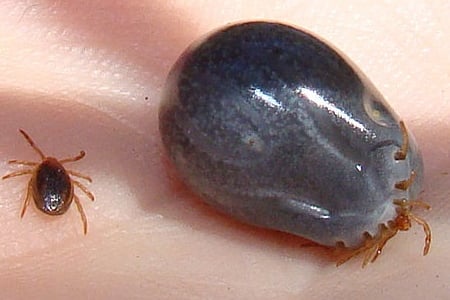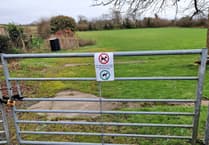Experts at British Pest Control Association (BPCA) are encouraging householders to be vigilant against insect infestations after indications of increased activity this autumn.
Members of the national trade body have reported a rise in flea infestations this year, highlighting concerns around possible resistance to shop-bought flea treatments.
Tick populations in certain rural areas of the UK have reportedly jumped in recent weeks, while autumn is also a key period for bed bug activity as many will hitch a ride home with holidaymakers over the summer.
John Horsley, Technical Officer at BPCA said: “It can be distressing to discover an insect infestation. It’s not pleasant to be bitten by fleas or bed bugs.
“Different pest problems require the use of specific techniques and products, so if you discover you have an unwanted guest in your home, or in the case of ticks, on your person, it’s essential you establish what species it is before you take any action.”
Fleas can be carried into any property on pets, people or soft furnishing.
While they don’t pose a direct health risk, their bites can cause intense irritation and itching, may become infected and have been known to cause skin complaints and exacerbate respiratory illnesses.
Thorough vacuum cleaning, washing clothes or pet bedding at 60°C and DIY treatments can be effective, but if treatments fail or the infestation escalates, get help from a pest professional such as a BPCA member.
Bed bugs will hitch a ride into your home on clothes, luggage and furniture. They are notoriously difficult to treat and most DIY treatments will fail, so the sooner you get help the better.

If you suspect bed bugs have moved in, contact a pest professional such as a BPCA member, who will have the experience, products and know-how to deal with the problem as quickly and safely as possible.
An infestation of ticks inside a home is a very rare occurrence, but you can find them on your clothing or already feeding from you or your pets, especially after walking in grasslands, woodland or moorland.
Ticks are a blood-sucking parasite and can latch on to people or pets – often after walking through infested areas of long grass.
If you’re going for a countryside walk, it’s advised that you wear long trousers tucked into socks and suitable footwear.
If you discover a tick on yourself or your pet, get help from a GP or vet to remove it.
DIY removal can result in the tick’s mouthparts being left in the wound.
Ticks spread Lyme disease, which can be very serious if left untreated. If a rash appears at the site of the bite, seek medical attention.
BPCA has a series of online guides with detailed information and advice about fleas, bed bugs, ticks and other pests at: bpca.org.uk/A-Z
John added: “The solution varies depending on the pest, so it’s important to know the difference between them.
“If you’re unsure what you’re dealing with, immediately call a pest professional such as a BPCA member for help.
“They will be able to confidently identify any unexpected visitors and have the technical knowledge and experience to apply products in an efficient manner while minimising risk to the environment and non-target species.
“They will put together a plan of action and talk you through the steps required to tackle the problem.”
To find a BPCA member visit: bpca.org.uk/find.




